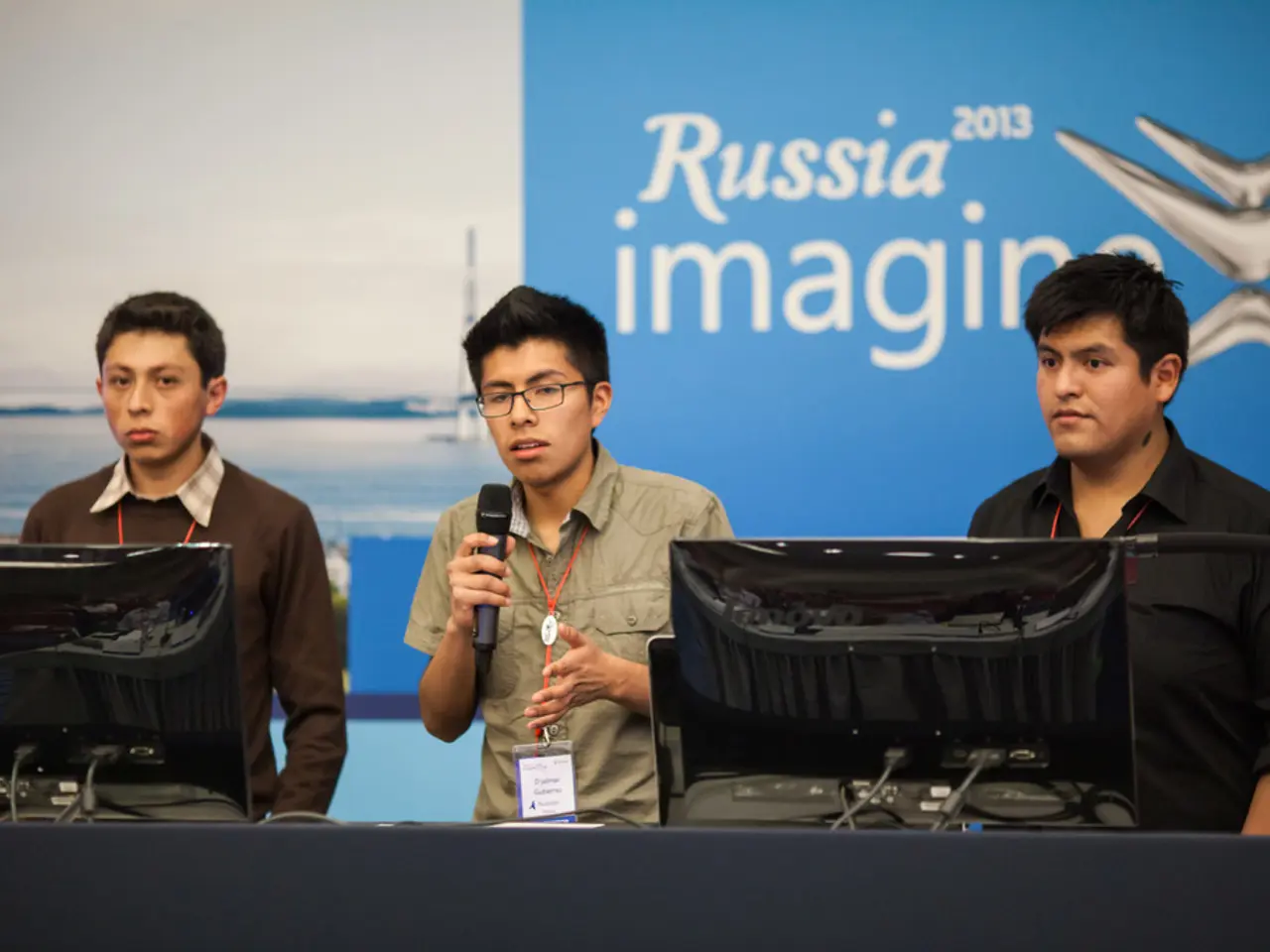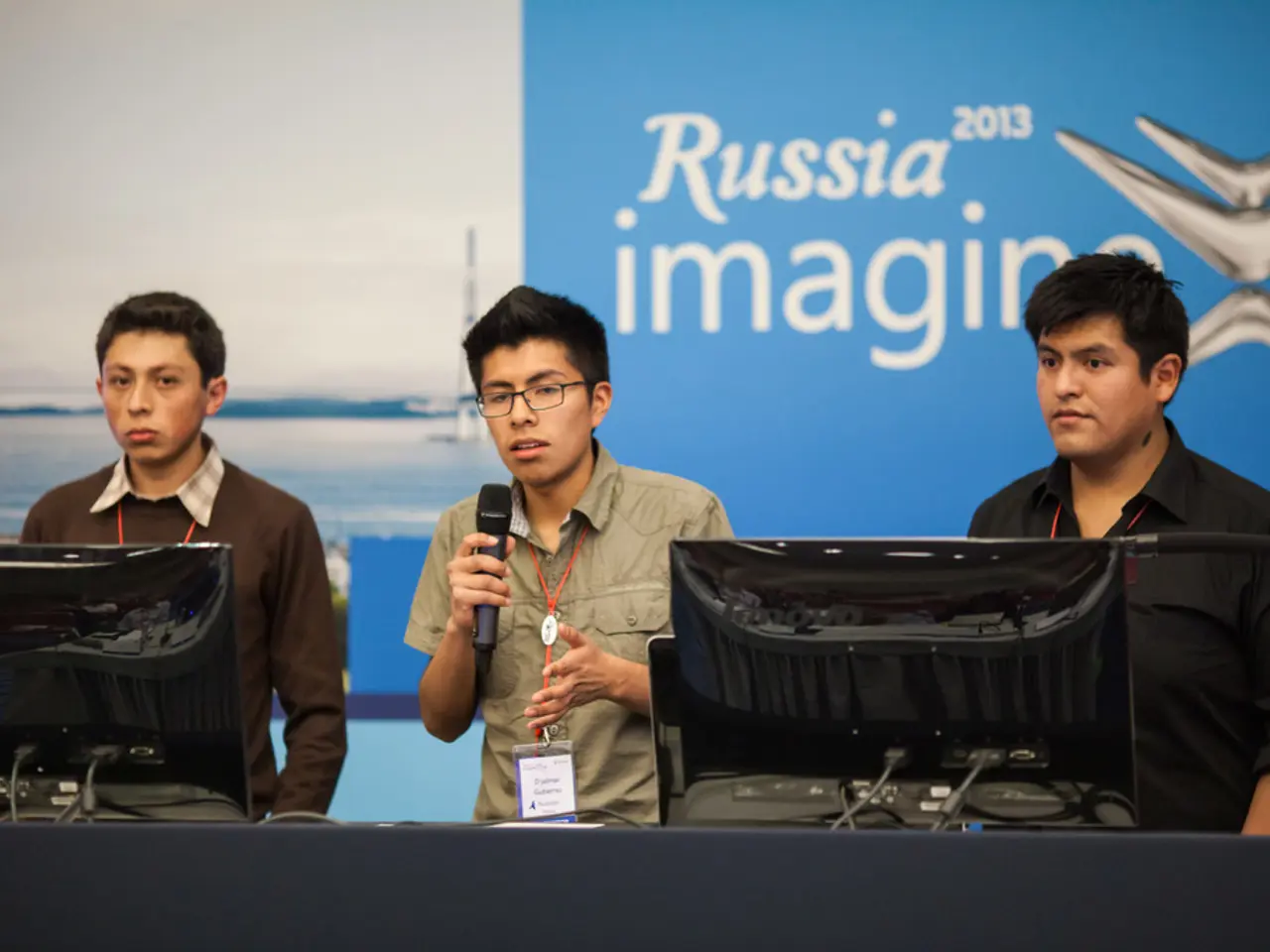Divisive political ideologies have driven us to the brink of division
In a world grappling with numerous crises, the call for shared ethics and a unified framework to address these challenges has never been more urgent. The Baha'i Faith, with its fundamental purpose of protecting the interests of the human race, promoting unity, and stimulating the spirit of love and fellowship among men, offers a unique perspective on political systems and social transformation.
The Baha'i Faith posits that genuine human solidarity is the key to overcoming deep social disunity, whether political, racial, religious, or otherwise. This perspective challenges the conventional political system, which often relies on partisanship to drive progress and justice.
To modify partisan systems and foster genuine human solidarity, several strategies and alternative social structures are proposed. These include emphasizing unity and avoiding partisan politics, promoting non-partisan governance, encouraging public discourse on unity, and establishing community-based initiatives, non-partisan community assemblies, and educational programs that emphasize the oneness of humanity.
However, implementing these changes requires sensitivity to cultural and historical contexts, a gradual and sustained effort, and a balanced approach to diversity and unity. The ultimate goal is to shift the focus from partisanship towards unity and solidarity, aligning with the Baha'i principles of the oneness of humanity.
The divisive "us against them" structure of traditional politics allows certain voices and interests to be privileged over others, and paralyzes ordinary citizens from becoming agents of change in their own communities. The political party system itself is considered a major obstacle to the creation of truly united and freely functioning countries.
In a heated political climate, where people are accustomed to taking sides, social media seems to fuel anger, fear, and frustration in the frenetic cycle of counterattacks between political adversaries. The idea of promoting a spirit of love and camaraderie among all political divisions may seem naive or fatalistic.
Yet, progress or prosperity cannot be achieved without love and unity in the political body. As 'Abdu'l-Baha, a prominent figure in the Baha'i Faith, stated, love and unity are the needs of the political body of today. The Baha'i Faith teaches the unity of humanity, with Baha'u'llah, the founder of the Faith, writing that "the earth is one country and mankind its citizens."
In the United States and many other countries with a party-based system of government, Americans are bitterly divided along party lines, confirming the Western liberal democratic tradition of multiparty competition. However, the collective life of humanity suffers when any group thinks of its own well-being in isolation from the well-being of its neighbors, or pursues economic advantage without regard for the environment.
Americans are skeptical of government and distrustful due to corporate, financial, and political corruption that serves the interests of powerful minorities. The well-being of any segment of humanity is inextricably linked to the well-being of the whole, according to The Universal House of Justice, the international governing body of the Baha'i Faith.
In conclusion, the Baha'i Faith offers a compelling vision for social transformation, one that prioritizes unity, love, and the oneness of humanity. While the journey towards this vision may be challenging, the potential benefits for humanity as a whole make it a worthwhile endeavour.
The Baha'i Faith suggests that a shift from partisan politics towards unity and human solidarity is crucial in addressing deep social disunity, including political, racial, and religious divisions. To actualize this change, Baha'i principles advocate for emphasizing unity, promoting non-partisan governance, encouraging public discourse on unity, and establishing community-based initiatives.







